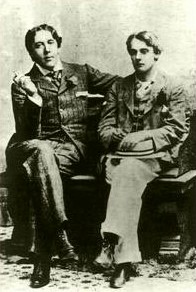One notable facet from the novel is that several character display a dual nature. Betteredge gives us this view of Franklin when he talks of the latter as having French, German, and Italian sides developed from foreign education, in addition to his native English side. Betteredge explains the dichotomy in the following paragraph:
"What do you think, for instance, of his discussing the lengths to which a married woman might let her admiration go for a man who was not her husband, and putting it in his clear-headed witty French way to the maiden aunt of the Vicar of Frizinghall? What do you think, when he shifted to the German side, of his telling the lord of the manor, while that great authority on cattle was quoting his experience in the breeding of bulls, that experience, properly understood counted for nothing, and that the proper way to breed bulls was to look deep into your own mind, evolve out of it the idea of a perfect bull, and produce him? What do you say, when our county member, growing hot, at cheese and salad time, about the spread of democracy in England, burst out as follows: "If we once lose our ancient safeguards, Mr. Blake, I beg to ask you, what have we got left?"—what do you say to Mr. Franklin answering, from the Italian point of view: "We have got three things left, sir—Love, Music, and Salad"? He not only terrified the company with such outbreaks as these, but, when the English side of him turned up in due course, he lost his foreign smoothness; and, getting on the subject of the medical profession, said such downright things in ridicule of doctors, that he actually put good-humoured little Mr. Candy in a rage."
The above paragraph illustrates the awkwadness that Franklin's many-sided personality produces. His French side shows his levity in serious discussions while his German side is philoophical in nature. He loses all intellect with his Italian side while his English side is uncouth and insular. Franklin, in his narrative, completely rejects Betteredge's hypothesis.
Sergeant Cuff is another character that has a dual nature. Cuff is the famed detective that is hired to solve the mystery of the diamond. He is able to uncover numerous clues at the beginning of the novel and at the end and names Godfrey as the thief before such is discovered. However, he has a fascination for roses and repeatedly debates the Verinder's gardener about the estate's rose garden:
'I found Sergeant Cuff and the gardener, with a bottle of Scotch whisky between them, head over ears in an argument on the growing of roses. The Sergeant was so deeply interested that he held up his hand, and signed to me not to interrupt the discussion, when I came in. As far as I could understand it, the question between them was, whether the white moss rose did, or did not, require to be budded on the dog-rose to make it grow well. Mr. Begbie said, Yes; and Sergeant Cuff said, No. They appealed to me, as hotly as a couple of boys. Knowing nothing whatever about the growing of roses, I steered a middle course—just as her Majesty's judges do, when the scales of justice bother them by hanging even to a hair. "Gentlemen," I remarked, "there is much to be said on both sides." In the temporary lull produced by that impartial sentence, I laid my lady's written message on the table, under the eyes of Sergeant Cuff.'
Despite being in the middle of an investigation, Cuff feels sufficiently confident enough in his abilities to pause momentarily and debate the gardener on the subject of roses. A love of detective work and roses does not seem to be compatible but Cuff explains the apparent contradiction:
'"If you will look about you (which most people won't do)," says Sergeant Cuff, "you will see that the nature of a man's tastes is, most times, as opposite as possible to the nature of a man's business. Show me any two things more opposite one from the other than a rose and a thief; and I'll correct my tastes accordingly—if it isn't too late at my time of life."'
Cuff is convinced that having opposing interests is a part of human nature.
Even the devout Miss Clack displays a dual nature. She is persistent in passing out tracts, such as "A Word With You On Your Cap-Ribbons," and keeping everyone from the flames of Hell but Betteredge points out that she drank liberally of the wine during the birthday dinner. Also, despite her Christian wisdom, she proves to be a bad judge of character in her assessment of Godfrey, whom she paints as a true Christian devoted to poor women's causes but who turns out to be the villain in the novel. Collins uses Miss Clack to poke fun at organized religion.



